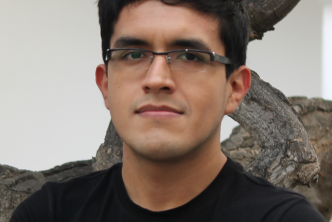This thesis investigates the notion of embodied cognition in humans using the research of former University of Washington researcher William Calvin and robots using the research of former MIT professor Rodney Brooks. The idea is that the feedback from the physicality of humans is a precognition to our intelligence. The choice example I use for our physicality is the motion of throwing, particularly the javelin throw. For robotics, I focus on the development of ‘eyes’ in Brooks’ robot Cog and show how it demonstrated behavior we deem to be intelligent using the feedback gleaned from ‘seeing’. Altogether, I present evidence for and against the notion that we are who we are, cognitively speaking, because of the sensory feedback of our physical bodies, and what that may mean going forward in the future for our intelligence.
Embodied Cognition in Robots and Human Evolution

This thesis investigates the notion of embodied cognition in humans using the research of former University of Washington researcher William Calvin and robots using the research of former MIT professor Rodney Brooks.




